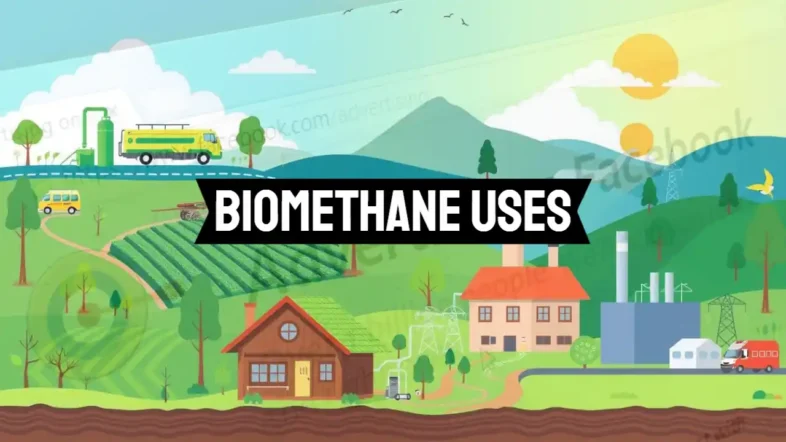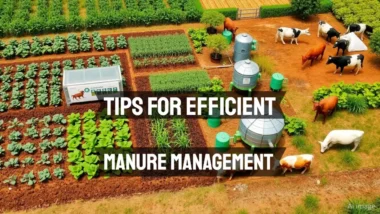Biomethane Uses: The Surprisingly Useful Role of Biomethane
In the United Kingdom, 30% of greenhouse gas emissions come from energy production. This makes finding new, green ways to make energy very important. Biomethane is a key player in this area, offering many benefits and uses.
The UK is moving towards cleaner energy, and biomethane is leading the way. It helps cut down on harmful emissions and makes energy more reliable. By looking at how biomethane is used, we see its big role in protecting our planet and boosting the economy.
Key Takeaways
- Biomethane is a renewable energy source that can help reduce greenhouse gas emissions
- The benefits of biomethane include increased energy security and reduced reliance on fossil fuels
- Biomethane applications are diverse, ranging from energy production to transportation
- Transportation is much easier to decarbonise through the use of biomethane
- The United Kingdom is at the forefront of biomethane production and innovation
- Biomethane uses have the potential to create new job opportunities and stimulate local economies
- Investing in biomethane can help mitigate the impacts of climate change
What Is Biomethane and How Is It Produced?
Biomethane is a clean energy source that helps cut down greenhouse gas emissions. It's made by anaerobic digestion of organic stuff like food waste and sewage sludge. Microorganisms break it down without oxygen, creating methane and carbon dioxide.
Making biomethane is a detailed process. It needs the right temperature, pH, and nutrients. This clean gas can replace natural gas, making biomethane energy a better choice. More countries are now using biomethane technology to cut down on fossil fuel use.
Biomethane has many benefits. It lowers greenhouse gas emissions, improves air quality, and boosts energy security. As we shift to cleaner energy, biomethane production and biomethane energy will become even more vital. New tech in biomethane technology will make it cheaper and more efficient.
Some main benefits of biomethane are:
- Renewable energy source
- Less greenhouse gas emissions
- Better air quality
- More energy security
We must keep investing in biomethane production and biomethane technology for a green future. This way, we can lessen our fossil fuel use and fight climate change.

The Environmental Impact of Biomethane Uses
Biomethane is key to cutting our carbon footprint. It helps us lower emissions and reach net zero. This green fuel is a big help in fighting climate change.
Some of the main impacts on our world from using biomethane are:
- Reduced greenhouse gas emissions
- Lower dependence on fossil fuels
- Improved air quality
Biomethane production from biogas (itself a product of the anaerobic digestion process) is complex, but its benefits are clear. It's vital for a greener future.
Biomethane is a good choice for reducing carbon emissions faster than can be achieved by alternatives. That's because of its effects in atmospheric methane reduction in the short term having a bigger cooling effect than longer half-life alternatives.
Studies show biomethane can cut carbon emissions by up to 80% compared to fossil fuels. This makes biomethane crucial for a sustainable energy mix.
Biomethane is a big step towards a sustainable future. By using biomethane and cutting fossil fuel use, we can greatly reduce emissions. This helps us reach net zero goals.
| Benefits of Biomethane | Environmental Impact |
|---|---|
| Reduced greenhouse gas emissions | Contributes to net zero goals |
| Lower dependence on fossil fuels | Improved air quality |
Biomethane in Transportation: Leading the Green Revolution
Biomethane is becoming a key player in the shift away from fossil fuels. It offers a way to cut down on harmful emissions and reduce our reliance on non-renewable energy. This makes it a great choice for vehicles that run on biomethane.

“A truck filling liquid biomethane, at a filling station” from www.researchgate.net and used with no modifications.
Biomethane Use as a Heavy Road Vehicle Fuel
Among the promising alternatives, biomethane has emerged as a viable transition fuel for heavy goods vehicles (HGVs) such as trucks, vans, and tankers. Biomethane not only offers immediate environmental and economic benefits but also provides a practical bridge to the future of hydrogen-powered or advanced battery electric vehicles.
- Cost Savings Biomethane is often cheaper than diesel on a per-mile basis, particularly in regions with incentives for renewable fuels. Additionally, fleets using biomethane benefit from lower operational costs and maintenance due to cleaner combustion.
- Compatibility with Existing Technology Many HGVs can transition to biomethane with minimal modifications, especially those already configured for compressed natural gas (CNG) or liquefied natural gas (LNG). This compatibility ensures a smoother adoption process compared to completely new technologies.

“biogas-powered train” from www.renewableenergymagazine.com and used with no modifications.
Biomethane Use to Power Biomethane Trains
In the UK, biomethane trains are being tested to lower rail emissions. This could make trains a greener option for travel.
- Efficient Use of Waste The production of biomethane capitalizes on the circular economy, utilizing organic waste from landfills, agriculture, and food industries. This approach not only generates fuel but also helps in managing waste responsibly, diverting it from landfills and reducing methane leakage into the atmosphere.
- Improved Air Quality Biomethane-powered engines produce fewer harmful pollutants, such as nitrogen oxides (NOx) and particulate matter (PM), compared to traditional diesel engines. This contributes to better urban air quality and public health, especially in areas with high vehicle density.
Also, cars and vans that run on biomethane are being made. They provide a cleaner way to get around for both personal and business use.

Agricultural Applications of Biomethane
Using biomethane in farming is a big step towards making farming more sustainable. Biomethane tractors are a cleaner choice compared to old tractors that run on fossil fuels. They help lower greenhouse gas emissions and cut down on costs.
Some main benefits of biomethane tractors are:
- They produce fewer emissions, which is good for the planet.
- They make farmers less reliant on outside energy sources because biomethane can be made right on the farm.
- They save money because fuel costs are lower and they need less upkeep.
By using biomethane tractors, farmers can help make the future greener and also boost their profits. Biomethane in farming shows how it can benefit many sectors.

Tip: Watch this video to the very end! You will see how New Holland's system captures slurry lagoon biogas that would otherwise escape to the atmosphere as methane, known as “fugitive emissions”.
As we move towards greener ways of living, biomethane's role in farming will grow. Its many benefits make it a key player in farming's future.
| Benefits | Description |
|---|---|
| Environmental Benefits | Reduced greenhouse gas emissions, lower carbon footprint |
| Economic Benefits | Lower fuel costs, reduced maintenance, energy independence |
Domestic and Industrial Energy Solutions
Biomethane energy is gaining popularity for homes and businesses. It lets people cut down on fossil fuels and lower carbon emissions. The gas to grid injection methane tech makes it easy to distribute biomethane for many uses.
Home Heating Systems
Biomethane powers home heating systems, offering a clean energy source. It's great for rural areas with limited energy access. Using biomethane for heating brings several benefits:
- Reduced greenhouse gas emissions
- Lower energy costs
- Increased energy independence
Industrial Process Heat
Biomethane is also good for industrial heat needs. It's key for many manufacturing steps. Using biomethane in industry cuts energy costs and environmental harm.
Power Generation
Biomethane can also power generators or be added to the gas grid. This opens up new energy solutions for homes and businesses. With biomethane, the future of energy looks bright and green.
| Application | Benefits |
|---|---|
| Home Heating Systems | Reduced greenhouse gas emissions, lower energy costs, increased energy independence |
| Industrial Process Heat | Reduced energy costs, minimized environmental impact |
| Power Generation | Renewable energy source, reduced reliance on fossil fuels |
Biomethane vs Traditional Fossil Fuels
Biomethane has many benefits over natural gas. One big plus is saving money on fuel. It's made from organic stuff, so it's a green energy option. This means we use less fossil fuels and spend less on energy.
In the UK, more people and companies are choosing biomethane. They do this to cut down on carbon emissions and help the planet.
Biomethane is good for the environment and our health. It cuts down on harmful gases and makes the air cleaner. Plus, it's easy to use in place of natural gas in many ways. The main perks of biomethane are:
- Renewable energy source
- Reduced greenhouse gas emissions
- Improved air quality
- Potential for fuel cost savings
Biomethane is a great choice over fossil fuels. It's good for the planet and can save money. As we look for cleaner energy, biomethane will become more important.
| Energy Source | Renewable | Greenhouse Gas Emissions | Fuel Cost Savings |
|---|---|---|---|
| Biomethane | Yes | Reduced | Potential for savings |
| Natural Gas | No | High | No savings |
Grid Injection and Infrastructure
Biomethane technology is getting better, and linking it to our current systems is key. Injecting biomethane into the gas grid, or gas to grid, is a big step. It makes this green energy easy to get and use.
For biomethane to work well, we need top-notch technology. This tech helps make biomethane that's good enough for the grid. As more people want biomethane, investing in this tech is vital.
Cost Benefits and Economic Advantages
Switching to biomethane can save a lot of money for both homes and businesses. It cuts down on energy costs, leading to big savings over time. This move also helps the environment by cutting down on harmful emissions and using less fossil fuels.
Some of the key benefits of biomethane include:
- Lower energy costs
- Reduced carbon footprint
- Increased energy independence
- Job creation and economic growth
As we move towards a greener future, biomethane's role is crucial. It helps us use less fossil fuels and fight climate change. The savings and benefits make it a smart choice for a more eco-friendly life.

In summary, biomethane offers great savings and benefits for our planet. Its advantages, like saving money and being good for the environment, make it a smart investment. In a recent post we explained that the full-scale adoption of biomethane in the UK could reduce bills by at least £415 an year for every household in the UK.
Retrofitting Existing Systems for Biomethane Uses
Biomethane is becoming a key player in cutting carbon emissions. Many industries are now retrofitting their systems to use this cleaner energy. This includes retrofitting diesel engines, which helps reduce environmental harm without needing to replace vehicles. For example, converting diesel buses to run on biomethane can greatly lower emissions in cities.
The steps to retrofit systems are clear. They include:
- Checking if the current system can work with biomethane
- Changing the engine and fuel system for biomethane
- Adding new parts, like fuel injectors and tanks
By retrofitting diesel engines and converting buses, companies can use biomethane. This cuts down on fossil fuel use. It's good for the planet and can save money for businesses switching to cleaner energy.
Retrofitting systems is vital for a greener future. With biomethane available, companies can help the environment and boost their profits. As the need for clean energy grows, so will the need to retrofit diesel engines and buses.
Future Uses in Biomethane Technology
The future of biomethane technology is looking bright. New uses and ongoing research are making it even more promising. One exciting area is biomethane aircraft, which could cut down air travel's carbon footprint. This could make flying greener and more sustainable.
Biomethane technology is ahead of hydrogen promises in being ready for use. It can be set up with the help of current systems. This makes it a good choice for companies and governments wanting to cut carbon emissions. The benefits include:
- Reduced greenhouse gas emissions
- Lower operating costs
- Improved energy efficiency
As research and development keep moving forward, we'll see more cool uses of biomethane. Its potential to help the environment makes it a field to watch closely.

The Prominent biomethane-upgrading columns shown in this visualisation of a biogas plant are of the type used for purification of the raw biogas to biomethane (also known as Renewable Natural Gas).
Policy Support and Government Initiatives in the UK
The UK government is pushing hard for biomethane sustainability in its net zero plan. Biomethane is now available now, and the new labour government is backing its use having promised new plans and rules. The Green Gas Scheme may be improved for biomethane producers. Including biomethane in the carbon credits available under the UK ETS (Emissions Trading Scheme), and re-applying the Renewable Heat Incentive (RHI) would be other ways to offer financial help to those who choose biomethane for transport fuel and heating.
Some key government efforts for biomethane include:
- The UK's biomethane strategy, aiming to boost production and use
- The Green Gas Support Scheme, offering funds for biomethane projects
- The Climate Change Act, setting a goal for the UK to hit net zero by 2050
These moves show the government's serious commitment to biomethane sustainability and hitting net zero. With biomethane ready for use, now is a great time for businesses to switch. This move not only cuts down on carbon emissions but also helps the UK become greener and more eco-friendly.
| Initiative | Purpose | Benefits |
|---|---|---|
| Renewable Heat Incentive (RHI) | Encourage biomethane adoption | Financial support for biomethane-powered heating systems |
| Green Gas Support Scheme | Support biomethane projects | Funding for biomethane projects |
| Climate Change Act | Set net zero target | Legislative framework for achieving net zero by 2050 |
Conclusion: The Uses of Biomethane in a Sustainable Future
Biomethane is set to be a key player in our sustainable future. It can power vehicles and provide energy for homes and businesses. Using biomethane helps us cut down on carbon emissions and move towards a greener world.
The benefits of biomethane are clear. It's easy to get, affordable, and fits well with our current systems. It's a real solution for reducing emissions and meeting sustainability targets. As we focus more on green energy, biomethane will become even more important.
We must keep working on biomethane technology. We should find new ways to use it and push for more innovation. By doing this, we can build a cleaner, better future for everyone. The future looks bright for biomethane, and we have a big chance to lead in sustainable energy.

Biomethane Use – FAQ
What are the most common uses of biomethane?
Biomethane is used in many ways. It powers vehicles, heats homes, and generates electricity. It can fuel cars, vans, and even trains and ships. It's also used for heating and making power.
How is biomethane produced?
Biomethane comes from organic materials like farm waste and food scraps. These are broken down without oxygen, making methane-rich biogas. This biogas is then cleaned and made into biomethane, just like natural gas.
What are the environmental benefits of using biomethane?
Biomethane is a green energy source that cuts down on carbon emissions. Using biomethane instead of fossil fuels helps fight climate change. It also helps manage waste, making our economy more circular.
How can biomethane be used in transportation?
Biomethane is great for many vehicles, including cars and buses. It can save money on fuel and cut emissions. It's also used in ships and could be for planes and trains too.
How can biomethane be integrated into agricultural practices?
Farmers can use their waste to make biomethane. This energy can power farm equipment, reducing emissions. It also gives farmers a new way to earn money.
How does biomethane compare to traditional fossil fuels?
Biomethane is better than fossil fuels because it's cleaner and can save money. It's also easy to use in our current systems. Unlike hydrogen, biomethane is ready to use now, making it a smart choice.
Can existing systems be retrofitted to use biomethane?
Yes, many systems can be changed to use biomethane. This includes buses and trucks, and even industrial equipment. Changing to biomethane can be cost-effective and beneficial.
What are the future innovations in biomethane technology?
New ideas are coming for biomethane, like using it in planes. There's also work on making it better and combining it with other green energy. While hydrogen is being looked at, biomethane is ready to use today.
How is the UK government supporting the growth of biomethane?
The UK government is backing biomethane to reach net-zero emissions. They have rules and support for using biomethane in transport and making it. This help is key to making biomethane a main energy source.







